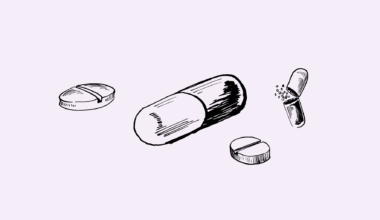Let’s decode the hormone that’s basically running the show behind the scenes.
So you’ve heard people throwing around “FSH” in TTC groups like it’s some kind of secret code. Maybe your doctor mentioned it, or maybe you saw someone celebrating their “good FSH numbers” and wondered what the heck they were talking about.
Don’t worry – FSH isn’t as mysterious as it sounds. Let’s break it down without drowning you in medical jargon.
What is FSH, Really?
FSH stands for Follicle Stimulating Hormone, and despite its very official-sounding name, it’s actually pretty straightforward.
Think of FSH as your ovaries’ personal trainer. Every month, your brain sends out this hormone with one job: “Hey ovaries! Time to get an egg ready!”
Your pituitary gland (a tiny but mighty gland in your brain) produces FSH and releases it into your bloodstream. It travels down to your ovaries and basically says, “Rise and shine, follicles! Let’s make this happen!”
The follicles – those little sacs that house your eggs – respond by starting to mature. Usually one becomes the star of the show each cycle, while the others fade into the background like backup dancers.
Why FSH Levels Matter
Here’s where FSH becomes relevant to your TTC journey: your FSH levels can tell you how hard your body is working to make ovulation happen.
Normal FSH levels (typically 3-10 mIU/mL on day 3 of your cycle) usually mean your ovaries are responding well. Your body is saying, “Yep, we’ve got this egg thing figured out.”
Higher FSH levels often mean your ovaries need more encouragement. Your brain is turning up the volume: “HELLO OVARIES! ARE YOU LISTENING? WE NEED SOME EGGS OVER HERE!”
It’s like when you have to knock louder and louder on your teenager’s door to wake them up – the louder you have to knock, the deeper they’re sleeping.
Getting Tested: What to Expect
The FSH test is refreshingly simple – just a blood draw on day 3 of your cycle (day 1 being the first day of your period).
Why day 3? That’s when FSH levels are at their baseline, before your ovaries have had their morning coffee and gotten to work for the month.
The test takes about 30 seconds. You’ll probably wait longer for the results than you did for the blood draw. (Welcome to fertility testing, where waiting is always the hardest part.)
What Your Numbers Mean
FSH levels aren’t pass/fail grades – they’re more like weather reports for your ovaries.
- Under 10: Generally the “green light” zone
- 10-15: Still normal for many labs, but your ovaries might be working a bit harder
- 15-20: Your doctor might want to discuss additional options
- Over 20: Often indicates significantly diminished ovarian reserve
Remember – these are general guidelines, not absolute rules. Your doctor will look at your results alongside your age, symptoms, and overall health picture.
The Real Talk You Need
Let’s be honest – getting FSH results can be scary if they’re not what you expected. Here’s what we want you to remember:
You are not a number. Your worth isn’t determined by your FSH level. You’re a whole person with a complex fertility picture that can’t be summed up in one test result.
High FSH doesn’t mean game over. It means you have information that can help guide your journey. Many people with elevated FSH still conceive – knowledge is just power, even when it’s not the knowledge you were hoping for.
You have options. Whether your FSH is 5 or 50, there are paths forward. Your doctor can help you figure out what makes sense for your situation.
Living with FSH Knowledge
Now that you understand FSH better, here’s how to use this information without losing your mind:
Don’t test obsessively. Checking FSH every month won’t change your levels and will definitely drain your bank account and sanity.
Focus on what you can control. You can’t dramatically change your FSH, but you can optimize your overall health through good nutrition, exercise, stress management, and sleep.
Get support. Whether your FSH is 3 or 30, the TTC journey can be emotionally challenging. Don’t go it alone.
FSH is one piece of your fertility puzzle – an important piece, but not the only piece. Think of it like a weather forecast: it gives you useful information for planning, but it doesn’t determine whether you’ll have a good time.
Your fertility journey is uniquely yours, FSH levels and all. Understanding this hormone better just puts you in the driver’s seat of your story.
MYTH BUSTERS: "High FSH means you can't get pregnant"
High FSH can indicate decreased ovarian reserve, but it doesn't mean game over. Many people with elevated FSH still conceive naturally. It's more like a heads-up than a verdict.
Don’t want to miss out on more fertility real-talk delivered straight to your inbox? Subscribe to our weekly newsletter for myth-busting, science-backed tips, and the support you actually need – all with a healthy sprinkle of humor because this journey is hard enough without being boring.
Ready for the deep dive? Check out our comprehensive guide “TTC but make it CHILL” for everything you need to know about your fertility journey without the overwhelm.
Questions? We’re always here – because no one should have to decode fertility science alone.






